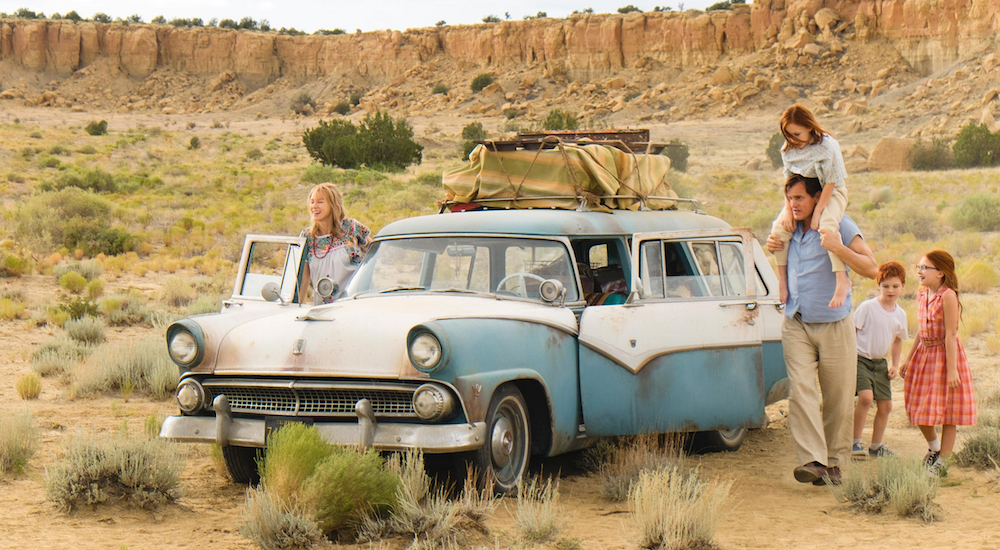Watching the trailer for The Glass Castle, you’d be forgiven for thinking the film was rather fluffy, what with The Lumineers playing in the background. You’d also certainly be mistaken. The film chronicles the unorthodox yet harsh upbringing of Jeannette Walls (Brie Larson) but, unfortunately, fails to break away from tropes and stereotypes long enough to make any real emotional impact.
Based on the hit 2006 memoir by Jeannette Walls, The Glass Castle chronicles a young girl coming of age with her siblings with an eccentric artist mother (Naomi Watts) and an alcoholic father who uses grandiose speeches to distract his kids from his drinking and their subsequent poverty (Woody Harrelson). When you’re a child, homeschooled and raised this way, it all seems exciting and adventurous. As Jeannette and her siblings grow older, it gets harder to ignore their parents’ neglect and problems, leading them all to look at their lives with fresh eyes and cling closer to one another.
Dysfunctional families have always been film fodder, so it becomes easy for The Glass Castle to rely on stereotypes and tropes, a bewildering choice when the film is based on someone’s real life. Somehow, the details that would make it unique fall by the wayside. Modern Jeannette (here, modern means 1989) has grown up and become everything her parents hate, writing a gossip column and engaged to a financial analyst (the always hilarious Max Greenfield, perhaps not meaning to be quite so funny in a very Schmidt-like performance). She’s defiant in her opulent jewelry, highly coiffed hairstyles, and heavy makeup.
The subsequent flashbacks we get to her childhood feel emotionally empty, as we already know that Jeannette and her siblings survive well enough into later decades. The tension you’re supposed to feel never materializes as this emotionally rich story gets told in a rote, predictable, almost Lifetime Network-esque manner. By the time the film ends with Jeannette happier and more relaxed, swapping her tight, highly constructed outfits for cozy sweaters and loose, soft hair, it’s hard not to eye-roll at the sheer laziness of it all.
The only saving graces here are strong performances from Larson and Harrelson. Larson’s stoic Jeannette still manages to visibly burn from the traumas of her childhood, whether she’s listlessly working at her desk, defiantly arguing with her fiancé, or trying to stay resilient in the face of her still-meandering parents. Harrelson, as he does in most performances, completely steals the show as grandiose drunk Rex Wells. Full of random facts and inspiring speeches, it’s easy to see how his kids and wife adored him, even as Harrelson makes apparent that Rex’s confidence stems from his own, deep-seated issues, patched up and shoved down with alcohol.
It’s a shame that The Glass Castle ends up feeling so forgettable when it’s clear that a different director could have done its source material more justice. Even strong performances from its leads can’t save it from its own laziness.

